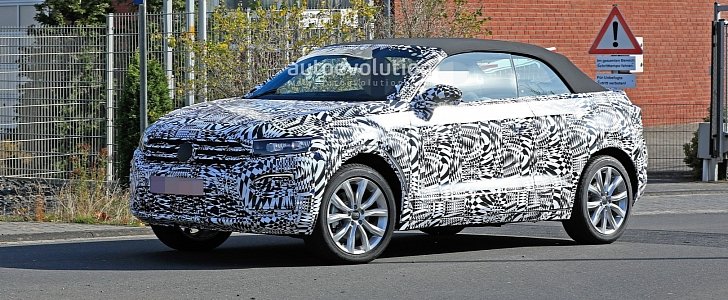Following the Dieselgate scandal that shook the automotive world like no other even in recent memory, Volkswagen took a different approach to its car-building philosophy. The J1 platform of the Porsche Taycan and Modularer Elektrobaukasten of the Volkswagen I.D. Neo are two steps in the right direction, but the German holding has a lot more in the pipeline.
Speaking to Bloomberg, strategy chief Michael Jost confirmed that Volkswagen “made mistakes” with the Dieselgate fiasco. But on the other hand, Jost said the automaker is “fully commited” to the Accord de Paris that went into effect in November 2016. The long-tem goal of the climate agreement is to reduce CO2 emissions, limiting the effects of climate change for future generations.
“Our colleagues are working on the last platform for vehicles that aren’t CO2 neutral,” added Jost, spelling the end of internal combustion as we know it. The “final gasoline and diesel technologies” will “roll out from 2026,” which means that dinosaur juice will become obsolete for Volkswagen by 2040.
Coincidence or not, the timing is perfect for France and the United Kingdom. Both countries pledged to ban the sale of gasoline and diesel-fueled cars by 2040, joining the likes of Norway (2025). “We’re gradually fading out combustion engines to the absolute minimum,” concluded Jost, which more or less is a reassurance that MAN and Scania will continue making diesel-fueled commercial vehicles.
Volkswagen has a thing for seven-year cycles between generations, which means that the inevitable will happen in two decades or thereabouts. The MEB architecture of the I.D. Neo and subsequent models will be the most important piece of the puzzle as far as the next decade is concerned, with Volkswagen expecting to produce 1,000,000 electric vehicles by 2025.
The Wolfsburg-based juggernaut sells fewer than 100,000 plug-in vehicles right now, and the target for EVs in 2020 is 150,000 examples of the breed. The first I.D. Neo, complete with rear-wheel drive and the roominess of a Golf, will roll off the assembly line in Zwickau in November 2019.
“Our colleagues are working on the last platform for vehicles that aren’t CO2 neutral,” added Jost, spelling the end of internal combustion as we know it. The “final gasoline and diesel technologies” will “roll out from 2026,” which means that dinosaur juice will become obsolete for Volkswagen by 2040.
Coincidence or not, the timing is perfect for France and the United Kingdom. Both countries pledged to ban the sale of gasoline and diesel-fueled cars by 2040, joining the likes of Norway (2025). “We’re gradually fading out combustion engines to the absolute minimum,” concluded Jost, which more or less is a reassurance that MAN and Scania will continue making diesel-fueled commercial vehicles.
Volkswagen has a thing for seven-year cycles between generations, which means that the inevitable will happen in two decades or thereabouts. The MEB architecture of the I.D. Neo and subsequent models will be the most important piece of the puzzle as far as the next decade is concerned, with Volkswagen expecting to produce 1,000,000 electric vehicles by 2025.
The Wolfsburg-based juggernaut sells fewer than 100,000 plug-in vehicles right now, and the target for EVs in 2020 is 150,000 examples of the breed. The first I.D. Neo, complete with rear-wheel drive and the roominess of a Golf, will roll off the assembly line in Zwickau in November 2019.














